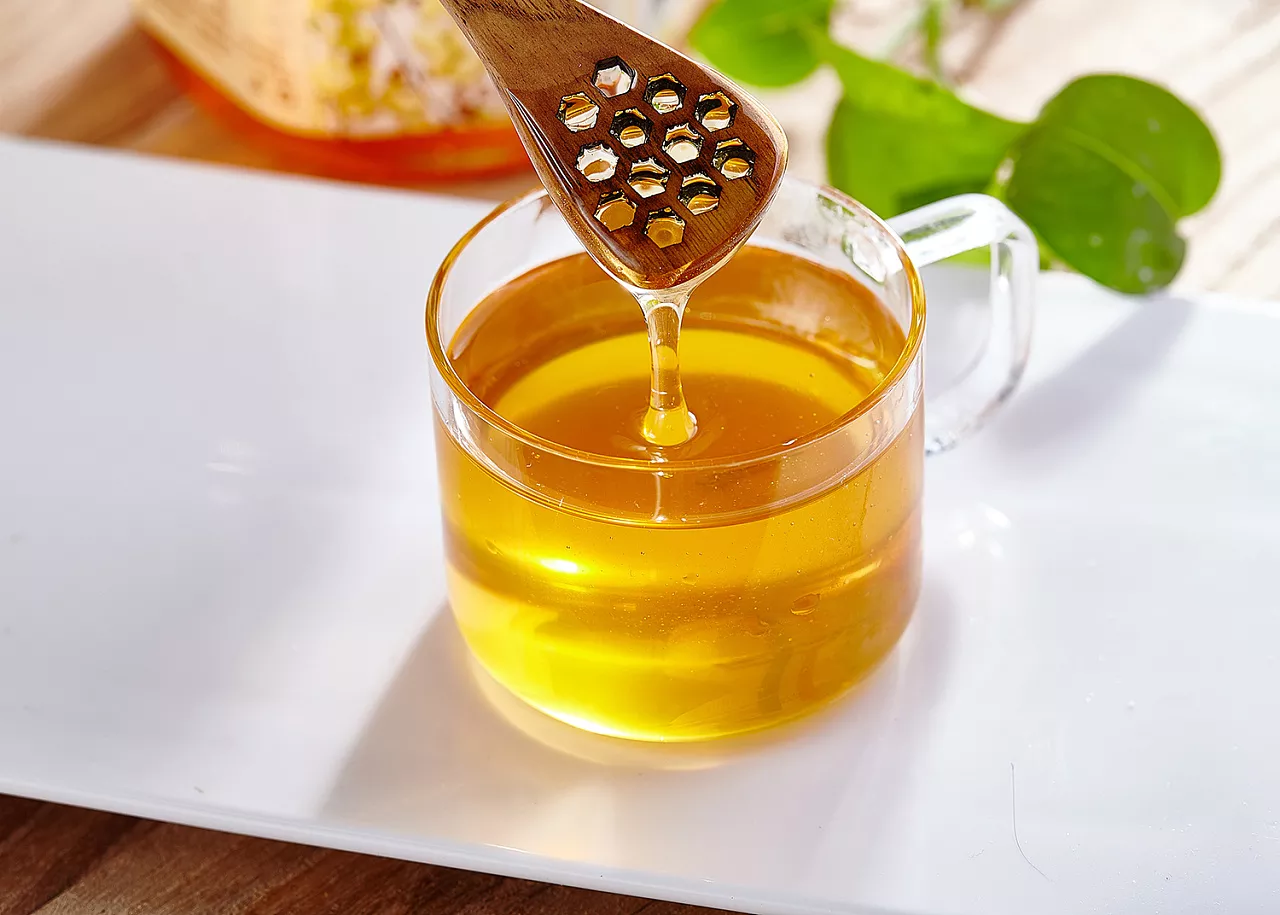Allergies are a common problem affecting millions of people worldwide. The symptoms of allergies can be uncomfortable and even debilitating, and many people turn to natural remedies to alleviate their symptoms. One such remedy is local honey, which is often touted as a natural way to treat allergies. In this article, we will explore what is considered local honey for allergies and whether there is any scientific evidence to support its use.
What is Local Honey for Allergies?
Local honey is honey that is produced by bees in the same geographical region as the person consuming the honey. The idea behind using local honey for allergies is that the honey contains small amounts of pollen from local plants. By consuming the honey, the body is exposed to these small amounts of pollen, which can help to desensitize the immune system and reduce allergy symptoms.
The theory behind using local honey for allergies is similar to the concept of immunotherapy, which is a medical treatment used to desensitize the immune system to allergens. Immunotherapy involves exposing the body to small doses of an allergen over a period of time, which can help to reduce the severity of allergy symptoms.
Is There Scientific Evidence to Support the Use of Local Honey for Allergies?
Despite the popularity of using local honey for allergies, there is little scientific evidence to support its use. While there have been some studies investigating the effects of honey on allergy symptoms, these studies have produced mixed results.
One study published in the Annals of Allergy, Asthma & Immunology found that consuming honey did not significantly reduce allergy symptoms compared to a placebo. However, another study published in the International Archives of Allergy and Immunology found that consuming honey did reduce allergy symptoms, but only in a small subset of participants.
The limited scientific evidence available suggests that while local honey may have some potential as a natural remedy for allergies, its effectiveness is likely to vary depending on the individual and the specific allergen causing their symptoms.
Potential Risks and Considerations
While local honey is generally considered safe for most people, there are some potential risks and considerations to keep in mind. Firstly, honey can be a potential source of botulism, a rare but serious type of food poisoning caused by a toxin produced by the bacterium Clostridium botulinum. While the risk of botulism from honey is low, it is important to avoid giving honey to infants under the age of one year, as their immune systems are not fully developed and they are at a higher risk of developing botulism.
Secondly, honey is a high-calorie food and should be consumed in moderation, especially for individuals who are trying to manage their weight.
Finally, it is important to note that local honey is not a substitute for medical treatment for allergies. While it may provide some relief for mild allergy symptoms, individuals with severe allergies should seek medical attention and follow their doctor’s recommended treatment plan.
Conclusion
Local honey is a popular natural remedy for allergies, but there is little scientific evidence to support its use. While some studies have suggested that consuming honey may reduce allergy symptoms, the evidence is mixed and its effectiveness is likely to vary depending on the individual and the specific allergen causing their symptoms.
It is important to keep in mind that local honey is not a substitute for medical treatment for allergies. Individuals with severe allergies should seek medical attention and follow their doctor’s recommended treatment plan. Additionally, it is important to consume honey in moderation and to be aware of the potential risks, such as the risk of botulism in infants under the age of one year.
Overall, while local honey may provide some relief for mild allergy symptoms, it is not a cure for allergies and should be used in conjunction with other treatments recommended by a healthcare professional.
The Science Behind Local Honey for Allergies
While there is limited scientific evidence to support the use of local honey for allergies, there is some research that suggests that it may have some potential as a natural remedy. The theory behind using local honey for allergies is that the honey contains small amounts of pollen from local plants. By consuming the honey, the body is exposed to these small amounts of pollen, which can help to desensitize the immune system and reduce allergy symptoms.
One study published in the International Archives of Allergy and Immunology found that consuming honey reduced allergy symptoms in a small subset of participants. The study involved 36 participants with seasonal allergies who were given either honey or a placebo for a period of eight weeks. The participants who consumed honey reported a 60% reduction in allergy symptoms, compared to a 10% reduction in the placebo group.
Another study published in the Journal of Medicinal Food found that honey had anti-inflammatory effects in the airways of rats with asthma. The study involved exposing rats to a substance that caused asthma-like symptoms and then treating them with honey. The researchers found that the honey reduced inflammation in the airways and improved lung function.
While these studies suggest that local honey may have some potential as a natural remedy for allergies, it is important to note that the evidence is limited and more research is needed to confirm these findings.
Potential Mechanisms of Action
The exact mechanisms by which local honey may reduce allergy symptoms are not well understood. However, there are several theories that have been proposed.
One theory is that the small amounts of pollen in local honey can help to desensitize the immune system to allergens. By consuming small amounts of pollen, the body may become less reactive to these allergens over time, leading to a reduction in allergy symptoms.
Another theory is that honey has anti-inflammatory properties that may help to reduce inflammation in the airways and other parts of the body. Inflammation is a key component of the allergic response, and reducing inflammation may help to alleviate allergy symptoms.
Finally, honey has been shown to have antibacterial and antiviral properties, which may help to reduce the risk of infections that can exacerbate allergy symptoms.
Potential Risks and Considerations
While local honey is generally considered safe for most people, there are some potential risks and considerations to keep in mind. Firstly, honey can be a potential source of botulism, a rare but serious type of food poisoning caused by a toxin produced by the bacterium Clostridium botulinum. While the risk of botulism from honey is low, it is important to avoid giving honey to infants under the age of one year, as their immune systems are not fully developed and they are at a higher risk of developing botulism.
Secondly, honey is a high-calorie food and should be consumed in moderation, especially for individuals who are trying to manage their weight.
Finally, it is important to note that local honey is not a substitute for medical treatment for allergies. While it may provide some relief for mild allergy symptoms, individuals with severe allergies should seek medical attention and follow their doctor’s recommended treatment plan.
Conclusion
Local honey is a popular natural remedy for allergies, but there is limited scientific evidence to support its use. While some studies have suggested that consuming honey may reduce allergy symptoms, the evidence is mixed and its effectiveness is likely to vary depending on the individual and the specific allergen causing their symptoms.
It is important to keep in mind that local honey is not a substitute for medical treatment for allergies. Individuals with severe allergies should seek medical attention and follow their doctor’s recommended treatment plan. Additionally, it is important to consume honey in moderation and to be aware of the potential risks, such as the risk of botulism in infants under the age of one year.
Overall, while local honey may provide some relief for mild allergy symptoms, it is not a cure for allergies and should be used in conjunction with other treatments recommended by a healthcare professional. Further research is needed to better understand the potential benefits and risks of using local honey for allergies.
[inline_related_posts title=”You Might Be Interested In” title_align=”left” style=”list” number=”6″ align=”none” ids=”5014,4977,4974″ by=”categories” orderby=”rand” order=”DESC” hide_thumb=”no” thumb_right=”no” views=”no” date=”yes” grid_columns=”2″ post_type=”” tax=””]
































